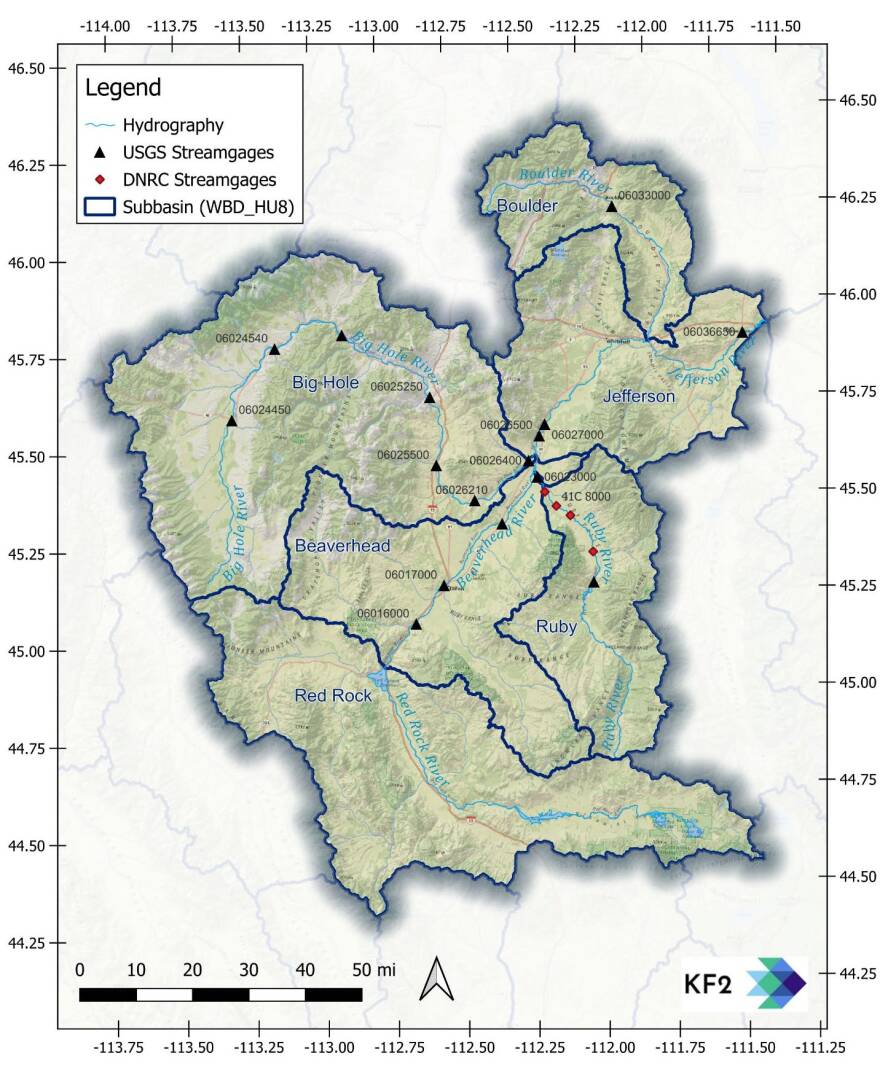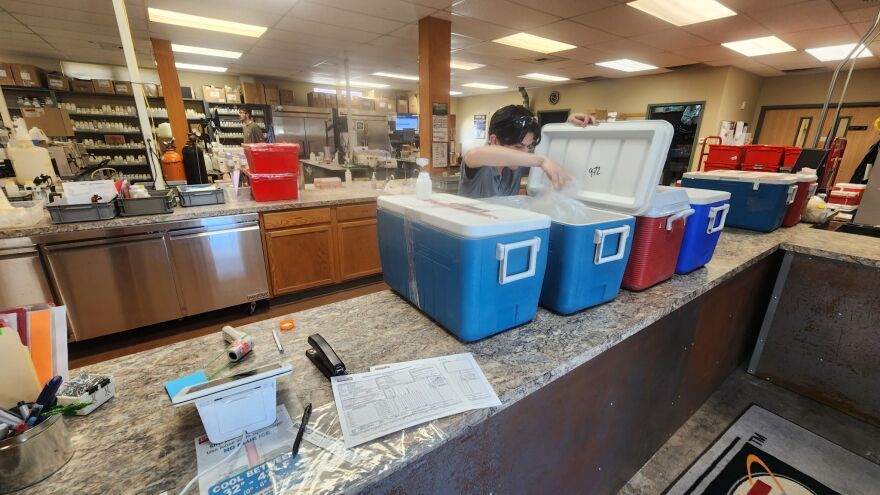Concern over the Jefferson River basin’s health rose in recent years as its trout populations declined to historic lows. Save Wild Trout Montana and the Upper Missouri River Waterkeeper contracted a study to learn why.
Hydrologist Kyle Flynn looked at factors like water temperature, oxygen levels and river speed over the past two years.
"If you have an elevated temperature, or a temperature that’s below normal, that may indicate some sort of medical condition in humans, and so we’re doing the same thing in water bodies," he says.
Flynn monitored the water quality of the Jefferson, Big Hole, Ruby and Beaverhead rivers. His findings show consistent temperature levels lethal for trout in 2024. They also showed oxygen levels below livable conditions for some aquatic life.

"You know there's pretty good signs – at least in my opinion – maybe those systems are eutrophied," Flynn says.
Eutrophied rivers have an overabundance of nutrients. This leads to more plant growth like algae that depletes oxygen levels in the water.
The nonprofits say this study underscores a need for more research into nutrient pollution. They hope the study will encourage state resources managers to increase monitoring.
Guy Alsentzer is executive director of the Upper Missouri River Waterkeeper.
"The whole point of this is to provide an evidentiary basis for our state agencies and our federal partners and then local groups on the ground to say, 'how do we do better,'" Alsentzer explains. "And how do we build resiliency into these river systems to protect these valuable fisheries and all that they support."
Alsentzer says state officials will need more data to make those regulatory decisions.
Montana Public Radio is a public service of the University of Montana. State government coverage is funded in part through a grant from the Corporation for Public Broadcasting.


